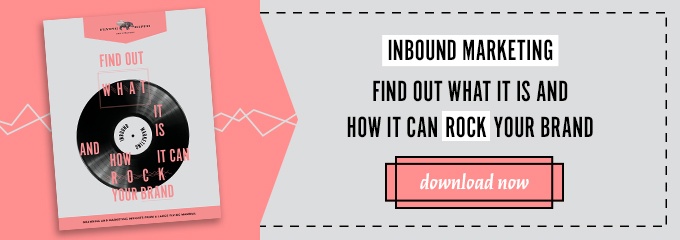 Marketing
Marketing
The Six Most Persuasive Words in Copywriting
Art direction is incredibly important. Graphics are crucial. But copy sells everything you do.
Copywriting is a tricky craft. Distilling what you’re intending to say into a concise statement — and making it catchy enough to catch the eyes of passers-by on the subway or sidewalk — is a tall order. Every company has an elevator pitch, or a 20-second outline, for what they are and what they do. Reducing that elevator pitch even further is a pain.
Still, there’s a reliable set of words that copywriters fall back on when the going gets tough. These six words are the most persuasive in copywriting — and they can be injected into your work today.
Your Customer’s Name
Colin Cherry, a British cognitive scientist, noticed something interesting when he was at a cocktail party. Despite the fact that he was in a noisy room with other people talking, he could hone in on one conversation with a friend. But when another friend on the other side of the room mentioned his name, his attention quickly veered toward that conversation.
It’s not narcissistic to think that people like hearing the sound of their own names. Ever since we were born, our names are used to call us to attention, to warn us and to keep us from danger. It’s no different when you’re copywriting.
Take a look through your email inbox. How many of the email subject lines have your name in it? Dropping a name in an email subject line is a great way to reach out to your customers and let them know they’re not just another name on a list.
Free
Imagine two cups of coffee: one Orange Mocha Frappuchino and one regular, nameless cup of coffee. Both are delicious in their own right, but the Frappuchino tastes way better.
The Frappuchino costs $1.50, but the regular cup of coffee costs one cent ($0.01). Which are you most likely to choose? Probably the Frappuchino.
Now imagine both cups of coffee on sale for exactly one cent less than they are right now: the Frappuchino costs $1.49, and the regular cup of coffee costs nothing. It’s free! Which would you more likely to choose now? Likely the free cup of coffee.
There’s really only a one-cent difference, not a substantial change. But by adding “free,” you’re giving away something that has intrinsic value for no cost. It’s a powerful word to use, but it’s not without risks. Don’t push it.
Help
Before the Beatles asked for “Help,” they were a B-list group of guys from England. After that, they went on to a string of album-topping records with throngs of screaming fans following them around. And all they had to do was ask for help!
Ok, so that’s not entirely true, but there’s a copywriting lesson there: people love to help other people, and they usually don’t ignore cries of help from other people or organizations. Try including “help” in your writing to catch your audience’s eye.
Because
Two-year-olds are constantly inquisitive about everything. “Why do we have to go to the grocery store?” “Why do I have to brush my teeth?” “Why do I have to change my shirt after spilling juice on it?”
The usual answer is “because I said so” — which is pretty unsatisfactory, really. So why do you leave your customers hanging by not answering their questions? Why should they purchase your product or work with you instead of anyone else?
It’s OK to say, “download our new ebook.” But it’s better to give your audience a solid reason why. It’s fine to offer a free consultation, but give your audience a reason to do so. Answer that “because” before your audience leaves for another site.
New
Old stuff isn’t bad, it’s just…old. A pair of jeans with the tags still on them will have more worth than a pair with the tags cut off that have been worn in. A cellphone new in its packaging is probably more valuable than one that’s been used, dropped and kicked around for a few years.
Try dropping in “new” with your content — especially on email subject lines — to catch a few eyeballs. Everyone loves to be an early adopter.
Now
Any sort of temporal words, such as “instantly,” “now” or “immediately” are hugely important to copywriting. Why? Because we all have a tendency to procrastinate and shun work. Whatever we’re doing, we want it done yesterday. That goes for copywriting, too.
When you offer any instant gratification in your copywriting, you give your audience a reason to pay attention. By missing any of the words you have to offer, they can run the risk of missing out.
Know of any other key copywriting words or phrases? Let us know below!


